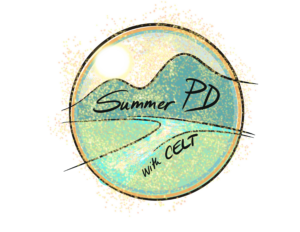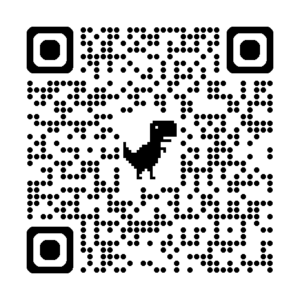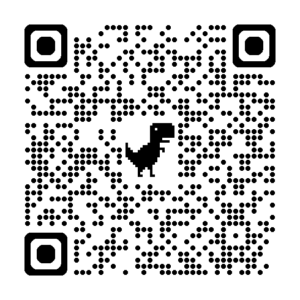By Dr. Rahul Jain, PhD, MSW, RCSW
Assistant Professor, School of Social Work and Human Service
Thompson Rivers University
Personal Moments That Sparked Reflection
Every fall, around late October, when I cross campus, the fallen leaves, the bare trees, and the scarcer sunlight seem to signal a quieter season ahead. Last week, as I prepared for class, I felt the sunlight was softer with an autumnal imprint and noticed the partially misted car windows. The palpable seasonal shift lingered as I walked from my office in Arts & Education building toward the classroom in Old Main building.
That moment prompted me to reflect on how seasonal changes impact us all, particularly students who have relocated to Kamloops for school. Importantly, these transitions do not just change the weather but impact our energy levels, moods, and even the way we approach our classes.
Science and Seasonal Mood Shifts
Many students report that early morning lectures feel more challenging during the winter months. This is often due to the reduced daylight, disrupting their circadian rhythms and making it harder to feel focused during those 8:30 a.m. classes. It is well documented that exposure to sunlight during the day helps regulate our circadian rhythms, influencing our sleep patterns and energy levels. Hence, as days shorten and sunlight plummets, our serotonin levels, which stabilize mood and focus, drop, while our bodies produce more melatonin, a hormone that regulates the “sleep-wake cycle.” This causes fatigue, slower thinking, and difficulty concentrating (Melrose, 2015).
The decreased light exposure is also known to affect our emotional well-being, cognitive function, and social interactions (Matheson et al., 2015; Kent et al., 2009; aan het Rot, Moskowitz and Young, 2008).
SAD: Not Just the “Winter Blues”
Seasonal Affective Disorder (SAD) is more than a temporary dip in mood. It is a subtype of major depression that usually occurs in late fall or early winter and improves with spring. Notably, it is not a personal failing but, as mentioned, a biological response to reduced sunlight. Further, SAD is treatable (CAMH, n.d.; Mayo Clinic, n.d.).
Common symptoms of SAD include:
– Persistent low mood or irritability
– Fatigue despite adequate sleep
– Oversleeping
– Increased cravings or appetite changes
– Trouble concentrating
– Withdrawal from social interactions
It is recommended to contact a health care provider if you feel down continuously for days and lack the motivation to engage in activities you normally enjoy (Mayo Clinic, n.d.).
Seasonal Change Across BC: A Regional Perspective
Having lived through the harsher winters of northern B.C. and the milder, brighter seasons of the Okanagan and Kamloops, I have witnessed firsthand how dramatically climate influences mood, energy, and routines.
At the same time, not everyone experiences winter’s arrival at the same time or in the same way, especially across different regions of the province. Kamloops, for instance, stands out in BC for its semi-arid climate with more sunny days than other areas, which makes the transition into winter seem slower. On the other hand, students, staff, and faculty from TRU’s regional campuses, or those in northern and central B.C., may feel the shift earlier and more acutely because of the shorter days and overcast skies.
Why Students and Faculty Feel It Intensely
The demands of university life, accompanied by long indoor hours and extended screen time (Deyo et al., 2024), can intensify the seasonal effects.
Interestingly, the campus “rhythm” also reflects the seasonal shift, with more students absent, faculty stretched thinner—balancing teaching, research, administration, and caregiving— and staff managing heavier workloads. Further, students manage academic, financial, and personal pressures, often without family support close at hand. Similarly, colleagues report a quiet shift in their stamina and emotional bandwidth.
Mutual Support
Recognizing that everyone is in the same boat should foster greater patience and kindness as the season deepens. Supporting one another can help foster resilience and strengthen coping. Students often find even small gestures, such as a kind check-in, flexibility with workload, or simple understanding, quite reassuring. So, when faculty and staff demonstrate compassion, they feel supported both academically and emotionally.
Copies Strategies for the Darker Months
I have noticed my own rhythm changing with seasonal shifts—more noticeably on some particular days. In response, I follow a consistent routine to preserve my energy levels. I take the stairs or step outside between meetings, and often choose the outdoor route to get between buildings to catch some sunlight. These brief exposures to daylight make a significant difference in how I feel and help me maintain steadiness throughout the day.
Existing research and my personal experience suggest several effective strategies:
– Seek Morning Light: Even 10–20 minutes of morning light can help reset your circadian rhythm.
– Try Light Therapy: Light therapy, particularly 10,000-lux light boxes, has strong evidence supporting its effectiveness in improving SAD (Zhang et al., 2022; Terman and Terman, 2005; Corliss, 2022).
– Move Regularly: Short walks can relieve fatigue and improve mood.
– Maintain Routines: Consistent sleep and meal schedules help stabilize energy levels.
– Eat for Energy: Consuming vitamin D, omega-3 fatty acids, warm meals, and staying hydrated provides “sustained energy.”
– Stay Connected: Small social interactions can lift mood and mitigate feelings of isolation.
Utilize Campus Supports:
– TRU Wellness Centre: Visit the centre, Old Main (OM) 1479 or call 250-828-5010.
– TRU Accessibility Services: Visit the office, OM 1631 or call 250-828-5023.
– TRU Employee & Family Assistance Program (EFAP): Access resources and support through the EFAP.
Navigating Winters
While daylight fluctuations are beyond our control, we can manage our response to these shifts. Awareness of our mood and energy, routine, and connection with the community are some of the effective tools. As a registered clinical social worker and educator, I have observed how small actions—like taking a walk between classes, having lunch by a window, or quickly checking in with a colleague—revive rhythm when days feel heavy.
Let’s not approach winter as something to endure but as a season to navigate with care, which should help restore our natural equilibrium.
References:
aan het Rot M, Moskowitz DS, Young SN. (2008, March). Exposure to bright light is associated with positive social interaction and good mood over short time periods: A naturalistic study in mildly seasonal people. J Psychiatr Res. 42(4):311-9. doi: 10.1016/j.jpsychires.2006.11.010.
CAMH. (n.d.). Seasonal Affective Disorder (SAD).
Corliss, J. (2022, October 28). Light therapy: Not just for seasonal depression? Harvard Health Publishing. https://www.health.harvard.edu/blog/light-therapy-not-just-for-seasonal-depression-202210282840
Deyo A, Wallace J, Kidwell KM. Screen time and mental health in college students: Time in nature as a protective factor. J Am Coll Health. 2024 Nov;72(8):3025-3032. doi: 10.1080/07448481.2022.2151843.
Kent, S. T., et al. (2009). Effect of sunlight exposure on cognitive function among depressed and non-depressed participants: a REGARDS cross-sectional study. Environmental Health. Jul 28;8:34. doi: 10.1186/1476-069X-8-34.
Terman M, Terman JS. (2005) Light therapy for seasonal and nonseasonal depression: Efficacy, protocol, safety, and side effects. CNS Spectrums. 10(8):647-663. doi:10.1017/S1092852900019611
Zhang, M., Guist, C., Rossmann, P., & Moon, C. (2022, June). Lightbox therapy for seasonal affective disorder in college students. Sleep, 45, Issue Supplement_1, https://doi.org/10.1093/sleep/zsac079.657
Matheson, G. J., et al. (2015). Diurnal and seasonal variation of the brain serotonin system in healthy male subjects. NeuroImage.
Mayo Clinic.(n.d.). Seasonal affective disorder.https://www.mayoclinic.org/diseases-conditions/seasonal-affective-disorder/symptoms-causes/syc-20364651
Melrose S. (2015). Seasonal affective disorder: An overview of assessment and treatment approaches. Depression Research and Treatment. doi: 10.1155/2015/178564.
National Institute of Mental Health. (n.d.). Seasonal Affective Disorder.









